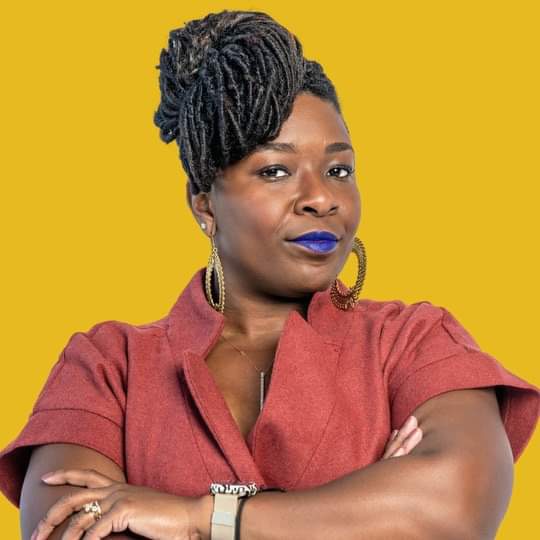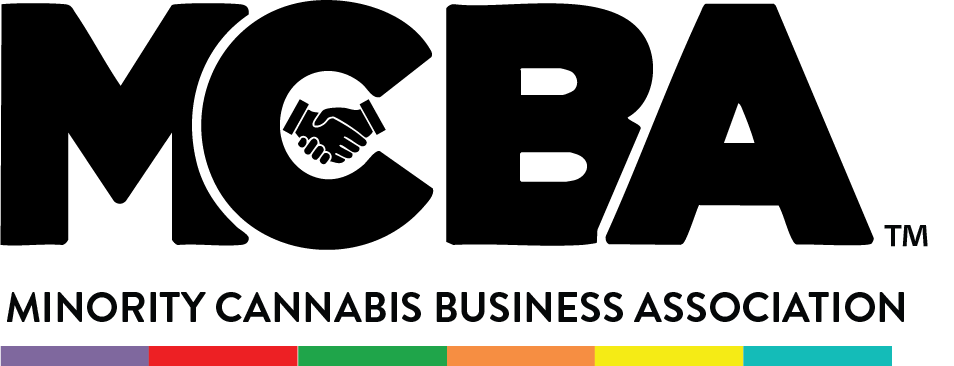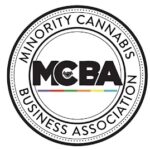
Despite cannabis consumers themselves being from a very diverse group of walks of life as well as age, the diversity of cannabis business license holders and C-level executives within most states’ industries certainly isn’t as nearly as diverse. Even with social equity measures being implemented in various state industries and other industry diversity-boosting attempts from state officials, there are still significantly more challenges that minority-owned cannabis businesses face when compared to billion-dollar multi-state operators. For a better understanding of those challenges and how truthfully successful social equity programs and measures have been, mycannabis.com had the pleasure of speaking with Frederika Easley, President of the Minority Cannabis Business Association.
How did the MCBA form, and what were some defining moments or decisions that led to the organization’s creation?
The MCBA was formed in response to systemic and institutional challenges faced by marginalized communities in the cannabis industry. The organization emerged from a clear recognition that entrepreneurs from these communities needed collective action and representation to effectively navigate the emerging cannabis landscape. This understanding of industry barriers and the need for unified advocacy laid the foundation for what would become a leading voice in cannabis equity.
What early struggles did the organization face upon forming, and how would you describe the process of creating a national trade association with the size and scope of MCBA? I would imagine just the process of forming such an organization alone would be quite arduous, much less one catered towards the still nascent cannabis industry.
Even today, a decade after formation, MCBA faces ongoing challenges that illustrate the complexities of operating in the cannabis space. As a well-established non-plant-touching entity, the organization continues to navigate obstacles including social media shadow bans on platforms like Meta, enhanced scrutiny for banking services, and limitations on sponsorship and partnership opportunities. These challenges underscore the importance of MCBA’s mission and the ongoing need for advocacy in the industry.
What is the overall mission of MCBA and how does the organization go about succeeding in both that mission and the other objectives of the organization as well?
The MCBA’s mission is to create equal access for cannabis businesses and economically empower communities of color through policy, programming, and outreach initiatives to achieve equity for the communities most impacted by the War on Drugs.
This mission is being actively pursued through the organization’s unanimously approved 2025 Organizational Priorities, which focus on empowering grassroots approaches designed to uplift local equity efforts through advocacy and entrepreneurship. MCBA leverages its national position to connect regional initiatives, breaking down silos and highlighting both challenges and successes across the industry.
What state markets are represented by the membership of the MCBA? Is it primarily only more East Coast states or are a decent amount of Midwest and West Coast states represented as well?
MCBA’s membership spans across the United States, reflecting the organization’s commitment to nationwide cannabis reform. The organization has recently expanded its ally membership tier to be more inclusive, welcoming consumers, advocates, and supporters who believe in cannabis access for adults 21 and over. This broad coalition approach strengthens MCBA’s advocacy power and economic influence in the industry.
Who are some of the notable board members, and what roles do they hold in the cannabis industry?
MCBA’s board of directors represents diverse expertise across the cannabis industry. Current board members include cannabis business owners who have successfully built and operated dispensaries, cultivation facilities, and manufacturing operations. The board also includes senior executives from licensed operators, practicing cannabis attorneys, C-suite leadership from major cannabis companies, established cannabis journalists and writers, and healthcare professionals specializing in medical cannabis. This breadth of experience at the board level ensures MCBA’s strategic initiatives are informed by comprehensive industry knowledge spanning business ownership, legal compliance, business operations, healthcare policy, and industry communications.
What brands and companies are members of MCBA?
MCBA’s membership encompasses a wide range of cannabis industry participants, from small independent operators to large multi-state organizations. Plant-touching members include dispensaries, cultivators, processors, and manufacturers. Non-plant-touching members span ancillary services such as compliance consultants, technology providers, packaging companies, marketing agencies, and professional service firms. The organization has also built strong partnerships with mainstream corporations interested in supporting cannabis equity initiatives. MCBA offers tiered membership options to accommodate different financial circumstances, making participation accessible to businesses of all sizes. Member achievements and offerings are regularly highlighted through MCBA’s website, newsletter, and social media channels.
Approximately how many members associated with MCBA are social equity businesses, and are some states’ social equity markets represented more than others?
Membership composition varies by state due to differences in equity program definitions and implementation. MCBA has particularly strong representation in mature markets where there has been more time and opportunity for equity programs to develop. The organization’s equity workshop tour and advocacy work continues to expand this representation across new markets.
Of MCBA’s members that are social equity brands and stores, how have they described their own experiences being first a social equity applicant and then a business owner? Are some states more welcoming and willing to work with social equity businesses over others?
The success of social equity businesses varies significantly based on state regulatory frameworks. States with more accessible application processes, reasonable fees, and clear compliance requirements tend to see better outcomes for equity entrepreneurs. MCBA advocates for accessibility in regulatory language and program implementation across all markets.
Overall, what are the most commonly occurring issues or inconveniences that the members of MCBA often deal with when operating their businesses? Because the professions of the board members are so diverse, I would imagine the issues faced by MCBA members would be quite varied, too.
Access to capital remains the primary challenge for MCBA members. Without comprehensive banking reform and rescheduling, entrepreneurs often face predatory lending practices and must take significant personal financial risks. The licensing and permitting processes also present substantial hurdles for many members.
Suppose cannabis were to be rescheduled from Schedule I to Schedule III. How would that impact both the MCBA and the businesses owned and operated by the membership of the organization?
Rescheduling to Schedule III represents significant progress toward normalizing and ultimately freeing the cannabis plant. A key benefit would be the removal of the 280E tax burden, which cost state-legal cannabis companies more than $1.8 billion in excess taxes compared to non-cannabis businesses in 2022, according to Whitney Economics. For MCBA members, this change would enable greater business reinvestment and accelerate profitability, strengthening their position in partnership and deal negotiations. As a member-driven organization, MCBA’s success is directly tied to the improved conditions and opportunities for its membership base.




